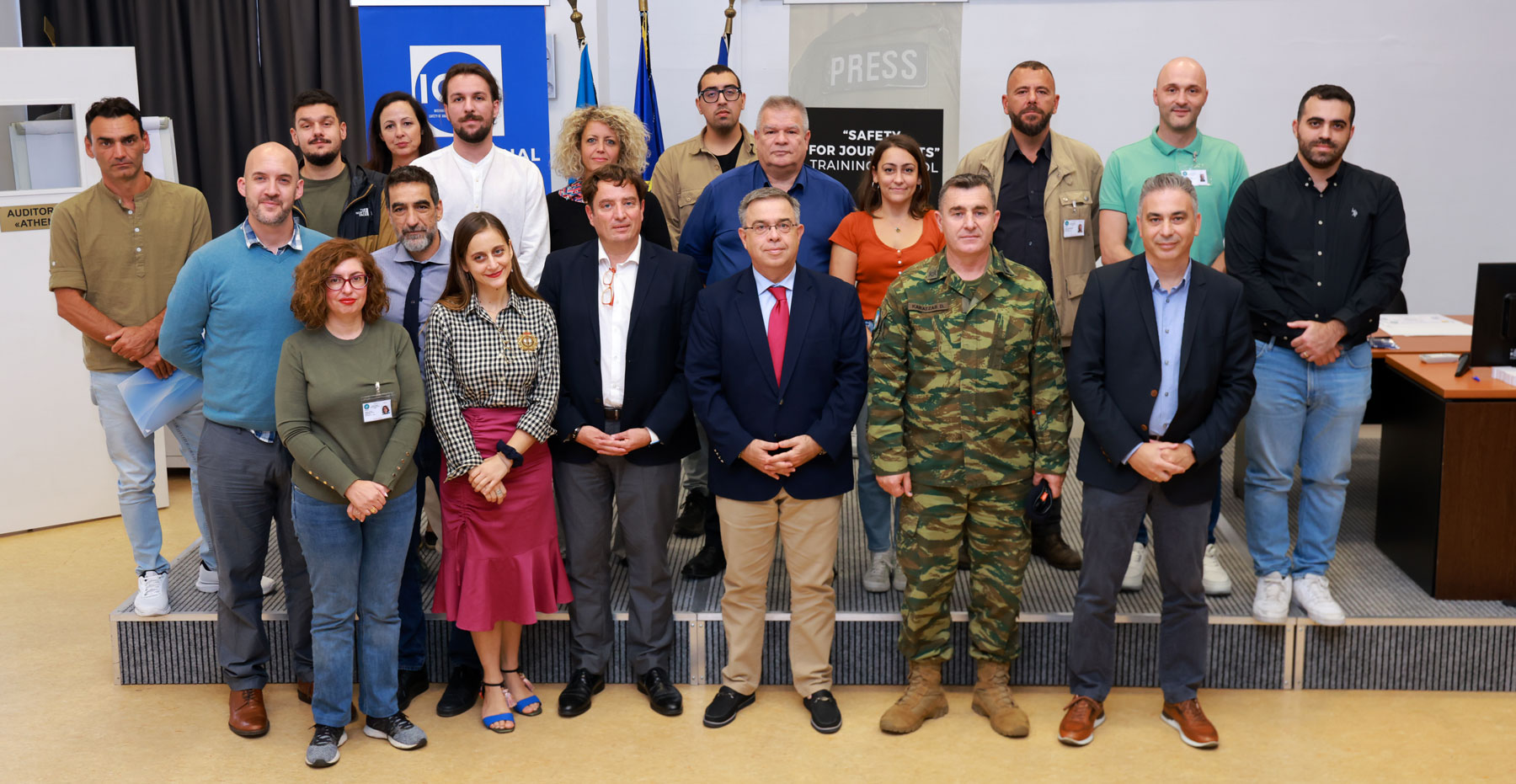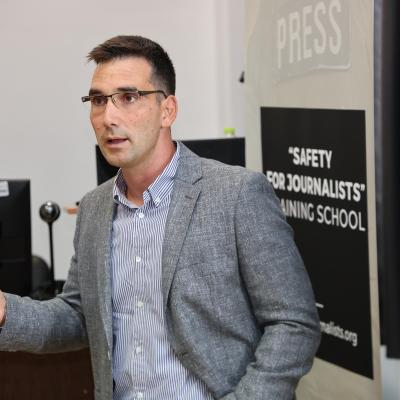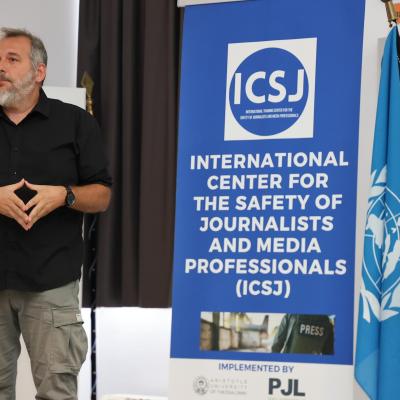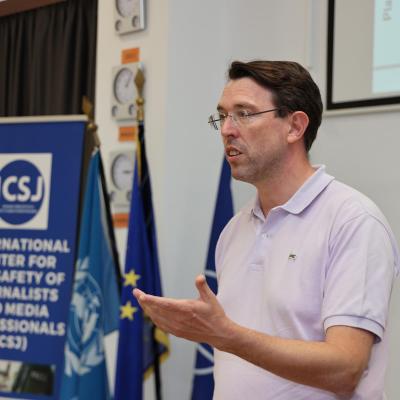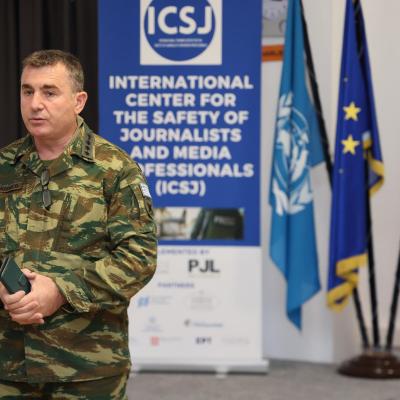The International Center for the Safety of Journalists and Media Professionals (ICSJ), under the academic oversight of the Peace Journalism Lab (PJL) at the Department of Journalism and Mass Media Studies of Aristotle University of Thessaloniki (AUTh), successfully held its annual Safety for Journalists training school from September 16 to 20, 2024. This training initiative was organized in collaboration with the Jean Monnet Chair on European Public Diplomacy, the Hellenic Multinational Peace Support Operations Training Centre, and a strong network of supporters, including DCN Global, the Journalists' Union of Macedonia and Thrace, the General Secretariat for Communication and Information, the Friedrich Naumann Foundation for Democracy, the European Federation of Journalists (EFJ), and Free Press Unlimited. Further support came from the Panhellenic Federation of Journalists’ Unions, the Municipality of Thessaloniki, ERT, and TV100, reinforcing the unified commitment to enhancing the safety and preparedness of journalists.
Comprehensive Training and Program Focus
The training school, designed to equip journalists with essential skills for navigating complex and high-risk environments, offered a robust combination of theoretical and hands-on modules. The program addressed critical issues such as conflict and crisis coverage, with particular emphasis on both physical and digital safety—an increasingly urgent necessity given recent geopolitical events, including conflicts in Ukraine, Palestine, and other crisis regions.
Key sessions in the training school included Global Journalism Ethics and Conflict, led by Dr. Ilias Nikezis, who introduced ethical frameworks essential for responsible reporting in conflict zones. Nikolaos Moulios led hands-on workshops on OSINT (Open Source Intelligence), guiding journalists on using online tools to gather reliable information. Operational Planning and Risk Assessments, facilitated by Adrien Collin of the EFJ, provided journalists with essential steps for preparation and risk assessment in conflict reporting. Professor Andreas Veglis taught Digital Safety, where participants learned best practices for securing data and communication. Self-Medical Care in the Field, conducted by Christina Zioga, George Tsitsilegkas, and Stefanos Portselis, covered vital first-aid skills for fieldwork. In the Hostage Survival Training session, journalists learned practical techniques for survival in hostile environments. Mission Experiences were shared by seasoned journalists, including Aris Messinis of AFP and Christos Nikolaidis, who offered insights on crisis reporting, while photojournalist Kostas Tsironis discussed the unique challenges of field photography in high-stakes situations. Human Rights-Based Reporting During War, led by Associate Professor Pantelis Vatikiotis and Dr. Athina Simatou, emphasized ethics and responsibilities in human rights-centered journalism. Chris Dalby of World of Crime addressed Trauma and Recovery for Journalists, focusing on mental health impacts and resilience strategies for journalists in conflict zones. Dr. Vasilis Zalidis presented Legal Aspects of Journalistic Protection, covering the legal frameworks that safeguard journalists and media professionals, while Hostile Environment Awareness Training (HEAT), also led by Dr. Ilias Nikezis, equipped participants with practical skills for surviving and operating in dangerous environments.
A Growing Global Initiative
Launched in 2019, the ICSJ training school has rapidly grown into one of the foremost programs globally dedicated to the protection of press freedom and journalists’ safety. The Peace Journalism Lab, a member of the United Nations Academic Impact Network, champions ethical journalism and peace-building through media, while ICSJ, under its academic guidance, remains committed to supporting journalists' security in conflict zones. This initiative underscores the pressing need for training in an era of increasing risks, aiming to ensure that journalists can continue their work responsibly and safely.
For more details on the ICSJ and its mission to support journalists, visit https://safetyforjournalists.org/index.php/en




